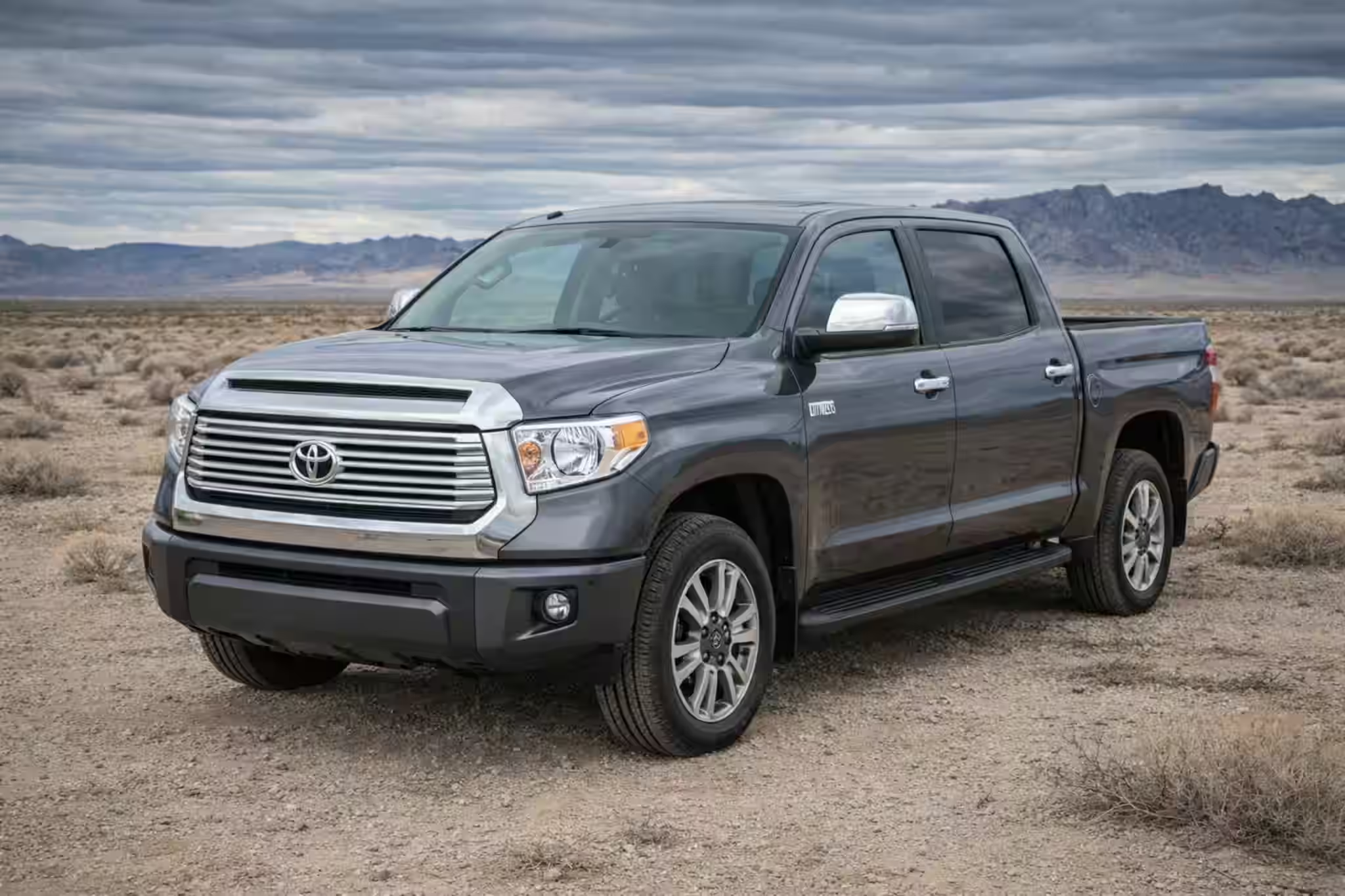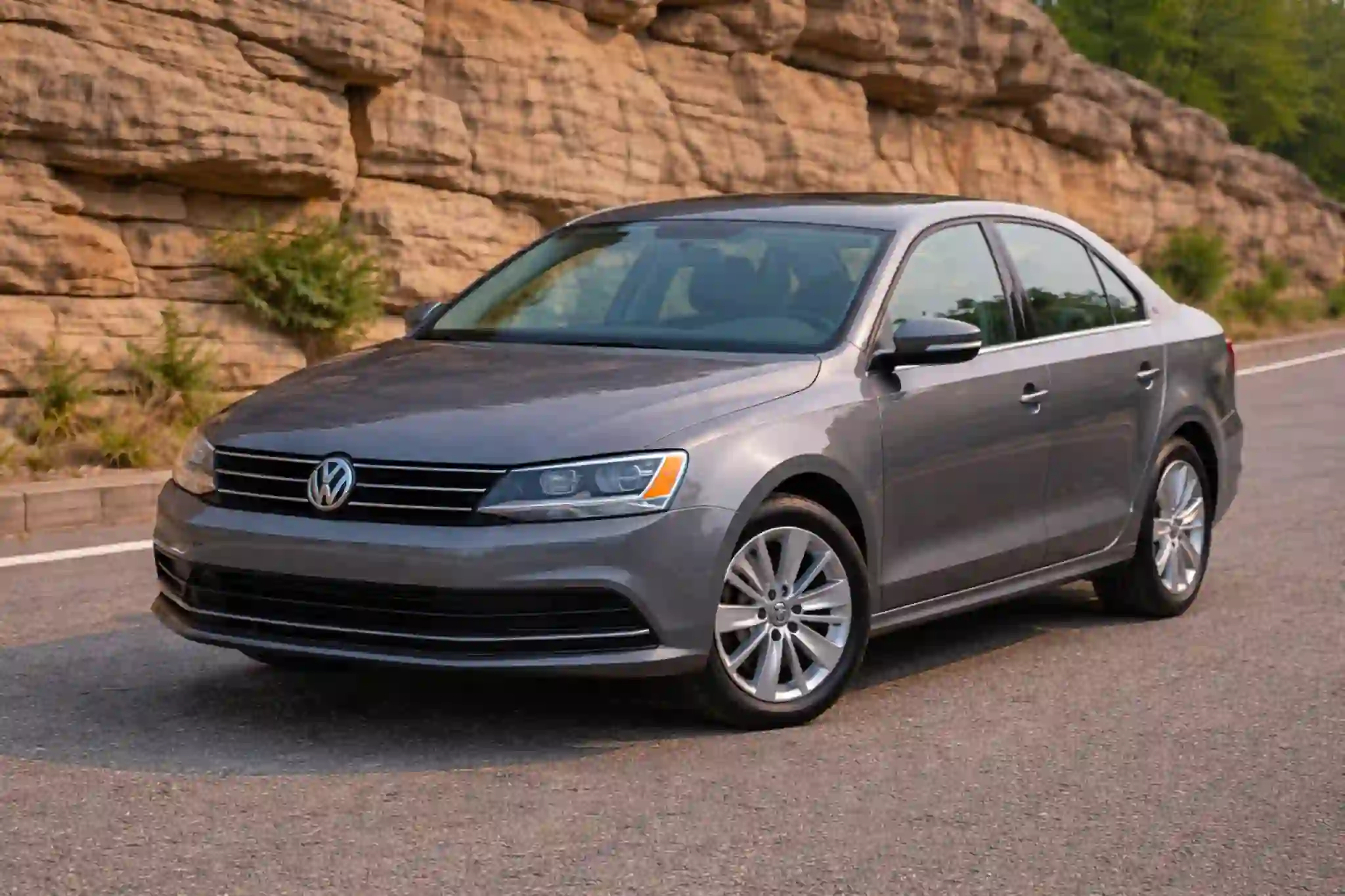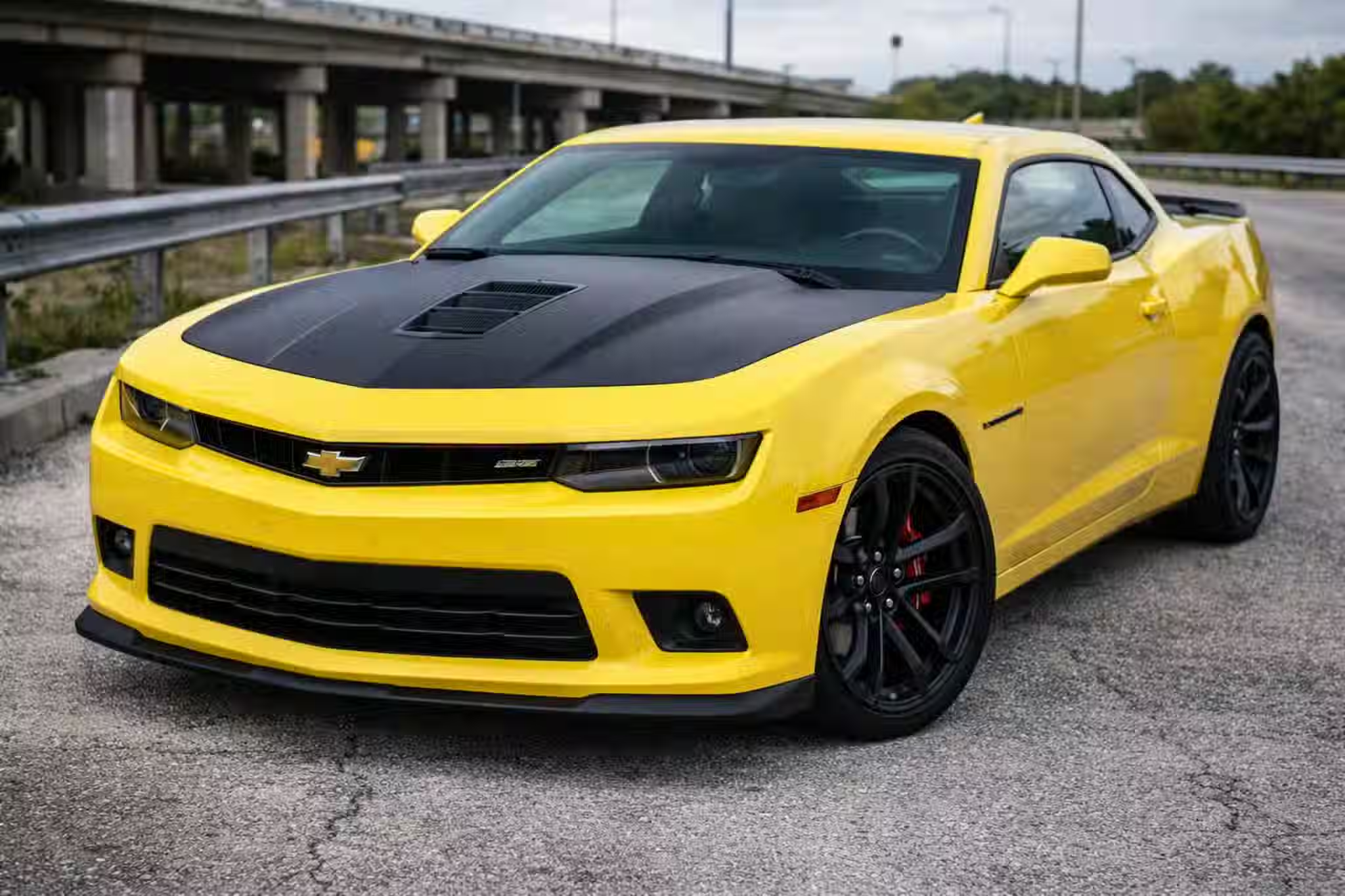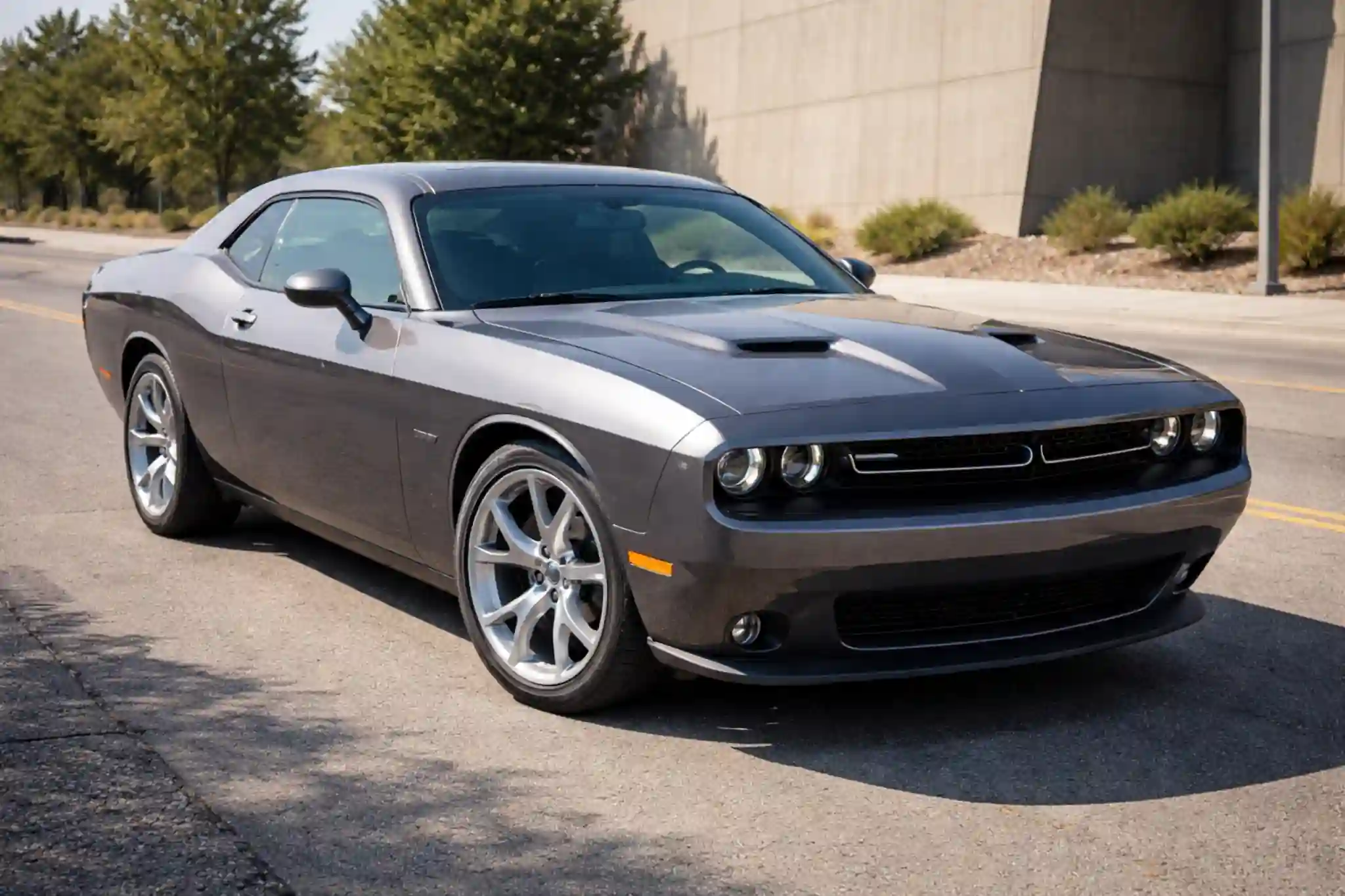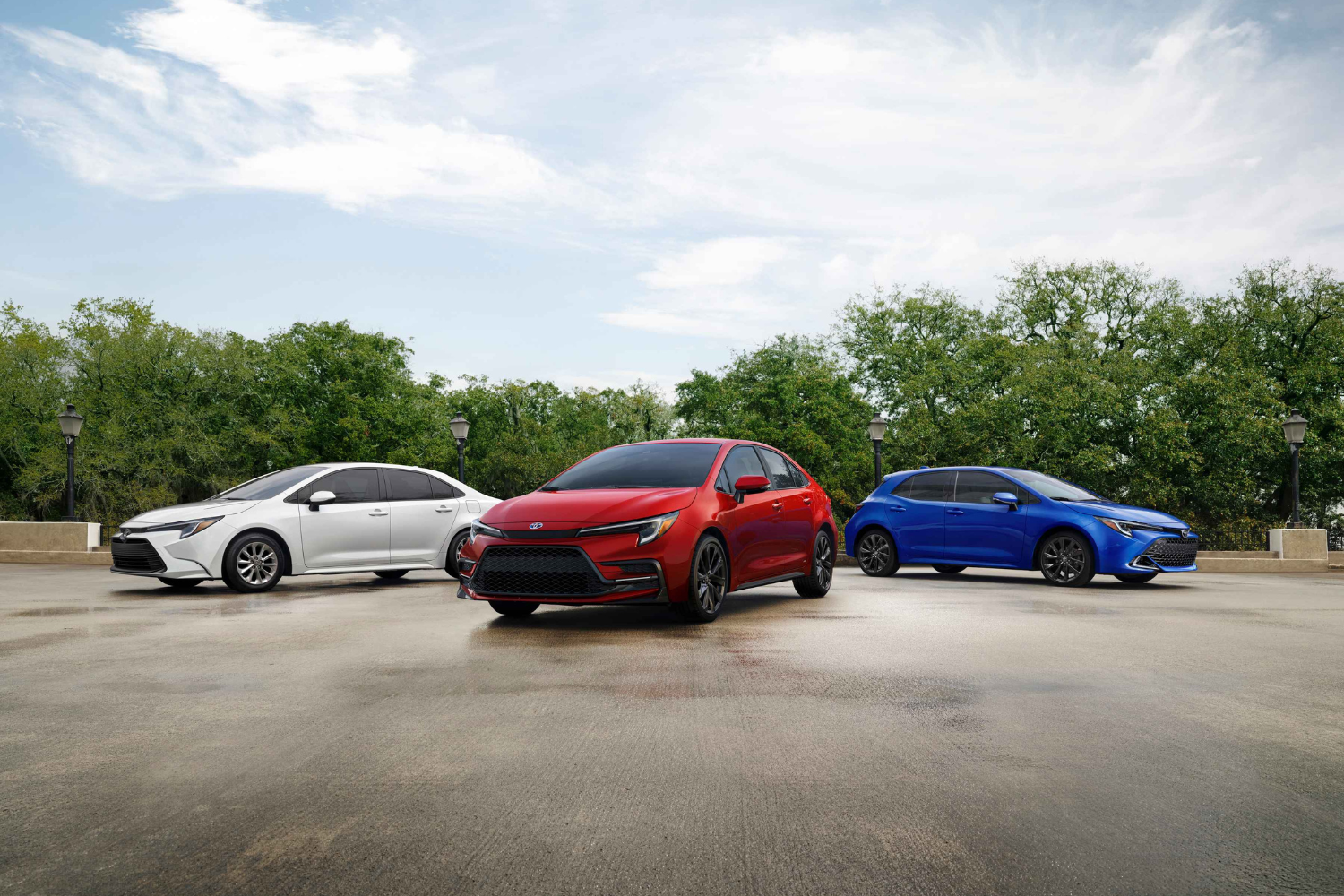
Price: $23,000–$28,000
8 /10
Rating
Pros
- Stylish dark exterior accents
- Excellent real-world fuel efficiency
- Composed, refined ride quality
Cons
- Firm suspension on rough roads
- Modest acceleration performance
- Higher trims lack value
Overview
Toyota’s 12th-generation Corolla Hybrid has always played the tortoise in a world of hares, but this year, the Nightshade trim cranks up the aesthetic drama without losing its fuel-efficient soul. Sliding into the redesigned sedan, I immediately noticed how the dark accents—blacked-out wheels, smoked taillights—gave it a vibe closer to the GR Corolla’s rebellious cousin than your best-selling commuter, though it still carries a practical side reminiscent of the Toyota Sienna.
Under the hood, the powertrain remains predictable (read: reliable), with the same 138 horses that won’t set your hair on fire but deliver a stable, 44 MPG average during my week of mixed driving—two MPG better than my old 2019 model. It’s no Prius when it comes to economy bragging rights, but compared to the Honda Civic or Mazda 3, it feels like the king of safe bets.
One rainy trip highlighted its ride quality: composed, if a bit firm, while the SE trim’s seats kept me glued during aggressive highway merges. Sure, the five-door hatchback might steal the glory for practicality, but this four-door sedan quietly carries the torch for hybrid performance without shouting. Is it powerful? Nope. But after testing both body styles, I’d argue the Corolla Hybrid’s intentions are clear: stay at the forefront of daily driving ease, not lap times—similar in spirit to the balanced utility offered by the Toyota Venza.
What's New?
Toyota decided the 12th-generation Corolla needed a little more drama, and boy, did the Nightshade trim deliver. Picture this: I’m rolling up to a coffee shop in the 2024 model, its bronze wheels glinting like a hipster’s artisanal espresso machine, while the black badging and dark roof scream “I’m here to vibe, not just commute.”
This isn’t just a sport appearance package—it’s a midlife crisis antidote for the SE trim crowd. The vented seats? Lifesavers during a sweaty afternoon stuck in traffic, though I’ll admit the “wing” on the rear lip is more “I’ve been to the gym once” than “actual athlete.”
Compared to the 2019 edition, the lineup now feels less like a return to basics and more like a generation that finally embraced its inner edgelord. Even the hatchbacks in the family get this dark, broody makeover, but let’s be real—the sedan’s bronze-and-black combo is where the Corolla’s appearance truly levels up.
Pricing, Trim Levels, and Best Choice
Let’s talk dollars and sense—because nobody wants to drop $28,000 on a sedan only to realize they paid extra for LED headlights that also moonlight as a disco ball. The 2024 lineup kicks off at $23,000 for the LE, which packs the 8.0-inch touchscreen, wireless Apple CarPlay/Android Auto, and standard features like a leather-trimmed steering wheel (fancy, right?).
But spring for the SE, and suddenly you’re rocking 18-inch wheels, a tauter suspension, and sporty tires that turn highway on-ramps into your personal autocross course—sort of. I took the SE on a drive through my pothole-riddled neighborhood, and while the sport setup made me feel like a Toyota-branded racecar driver, the tires transmitted every crack in the pavement straight to my kidneys.
The XLE adds cushy options like heated seats, but let’s be honest: if you’re eyeing a Corolla, you’re here for price efficiency, not pampering. My take? The SE trim nails the sweet spot between sporty flair and practicality—Toyota’s infotainment system is intuitive, the steering precise, and those LEDs make night drives less “Blair Witch Project.” Skip the XLE unless your ego demands leather-trimmed everything.
Powertrain & Performance
Sliding behind the wheel, the hybrid powertrain greeted me with the hum of a 2.0-liter four-cylinder paired with Toyota’s dependable CVT—a combo about as thrilling as a spreadsheet, but hey, it’s exemplary at sipping fuel. With 169 hp, acceleration from 0-60 mph feels like waiting for a sloth to finish a crossword, but the sport-tuned suspension and 18-inch rims on the SE trim almost convinced me I was driving something engaging. Not quite Audi A3 levels of punch or poise, but for a hybrid, it tries.
On a highway test, merging required a prayer and a lead foot, though the steering’s progressive inputs saved face during sharp turns. The brakes? Let’s just say 70-mph-to-zero braking tests had me white-knuckling the leather-trimmed wheel, while 16-inch tires on the base model soaked up bumps like a Netflix binge absorbs weekends.
Compared to the Honda Civic or Mazda 3, this sedan’s agility is more “dad bod at Zumba” than front-wheel-drive athlete, but the refinement in town ride quality? Chef’s kiss. One gripe: coarse roads turned the cabin into a symphony of sounds—think maracas filled with gravel. Still, for a tested, dependable Toyota powertrain that’ll outlast your gym membership, it’s satisfactory. Just don’t expect all-wheel-drive heroics or Mazda-level twins body motions. If you’re after something with more muscle and a luxury tilt, the Toyota Tundra Platinum offers a robust contrast, merging power with polish in ways this sedan can only hint at.
Toyota Corolla MPG
Let’s address the fuel elephant in the room: this hybrid isn’t just thrifty, it’s basically a rolling piggy bank. During my 75-mph highway drive, the Corolla’s 2.0-liter four-cylinder paired with its front-wheel hybrid engine earned a tested 44 mpg—beating the EPA’s estimates of 42 city/41 highway like it was casually jogging past a government-mandated finish line.
Compare that to the gas-only nonhybrid model, which tops out at a rated 32 city/40 highway, and suddenly that 169-hp feels like a fair trade for sipping fuel like a monk at a tea ceremony. Even the all-wheel-drive hatchbacks (yes, they exist!) managed a respectable 36 mpg on my mixed route, though the front-drive sedan remains the fuel-economy XSE of this lineup.
On a highway test, I saw 47 mpg drafting behind semis (don’t tell my mom), while aggressive city driving still rated a 43 mpg—numbers that’ll make even the EPA blush. Pro tip: Skip the website jargon and trust real-world economy; this four-cylinder’s fuel sipping is more reliable than my Wi-Fi.
Interior and Comfort
Sliding into the driver’s seat for a weekend trip with my taller parents, the dual-zone climate controls kept bickering over temperature settings to a minimum—though the vents’ position had my mom’s scarf doing a dramatic flip halfway through the highway drive.Soft-touch materials and responsive steering wheel controls gave the cabin a premium vibe, but Toyota’s noise-managing systems turned wind and road noise into a mild hum, unlike the Kia Niro Hybrid’s symphony of vibration.
The suspension soaked up bumps and cracks like a zen master, though rear legroom felt limited for my 6’2” dad, who joked he needed a compact car yoga routine. Still, headroom up front was generous, and heated seats (a top offer in higher systems) made chilly mornings feel relaxing. For a Hybrid vehicle, it’s quieter than expected, but don’t expect dramatic comfort upgrades over the standard Corolla.
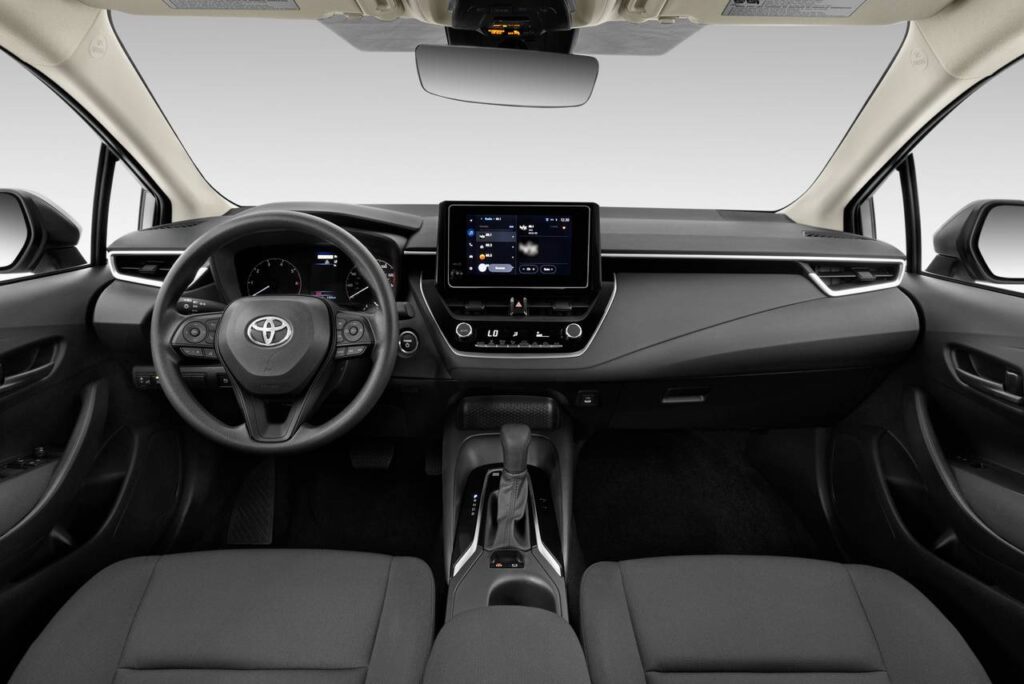
Cargo & Practicality
Let’s talk about trunk Tetris—because fitting a 13.1-cubic-foot hybrid sedan’s cargo space with my kid’s stroller felt like solving a Rubik’s Cube blindfolded. The trunk opening is narrow enough to make bulky items like boxes or a weekend camping cooler a troublesome issue, but toss in grocery bags or a compact suitcase, and it’s fine. Inside, the interior pockets and center console are small but clever: perfect for placing a strap, phone, or emergency snacks, though narrow door bins laughed at my Hydro Flask.
Folding the 60/40 split-fold rear seats (via releases near the headrests) freed up room for a bike, but the fixed seatbacks left me wrestling with maneuvering my guitar case sideways. For children? The LATCH anchor points made installing a car seat quicker than assembling IKEA furniture, though narrow rear doors turned every school drop-off into a game of Twister.
Daily wins: strong door hinges survived my toddler’s WWE-style dents, and the secure-feeling connection of the cargo floor kept items from becoming projectiles. But let’s be real—this isn’t a Hyundai Tucson. It’s a compact Corolla for folks who prioritize hybrid efficiency over hauling couches.
Tech & Connectivity
Let’s get one thing straight: the 8-inch touchscreen isn’t winning any beauty contests, but it’s like that friend who tries really hard. During a test drive, the voice control recognized my “play Taylor Swift” request without a lag—shocking, since my coffee order gets misheard daily. The JBL-branded audio system? Crisp enough to make my dad’s classic rock playlist sound like a sharp vinyl record, though bass-heavy tracks had the small door panels vibrating like a nervous chihuahua.
Blind-spot monitoring and lane departure warning aids worked overtime on a chaotic highway merge, flashing visual alerts like a paranoid co-pilot. But the buttons? Toyota stuck a primary button for temperature control—bless them—because stabbing at touch functions while moving is like texting in mittens.
Downside? The navigation system demanded a subscription after the trial, which feels like paying rent for GPS. And don’t get me started on the fingerprint-smudged screen—it’s a key miss in an otherwise updated integration. Pro tip: Use Apple CarPlay/Android Auto to bypass the Toyota interface entirely. It’s like bringing your own playlist to a mediocre party.
Safety
During a monsoon-soaked highway drive, the pre-collision system jerked me awake with a forward-collision warning as traffic ahead slammed to a stop—automatic emergency brakes kicked in like an over-caffeinated guardian angel. The lane-departure assist gently nudged the steering when my tired eyes wandered, though its dynamic radar cruise control got jumpy tailgating slow trucks. NHTSA’s 5-star crash-test rating and IIHS’s Top Safety Pick+ results aren’t just stats; they’re why my coffee stayed upright during a collision-dodging swerve. But the lane-keeping assist? Let’s call it “enthusiastic”—like a backseat driver who really hates drifting.
Key features:
✅ Top-tier crash-test scores from NHTSA and IIHS.
✅ Radar-based adaptive cruise struggles in heavy traffic.
✅ Lane-keeping assist prioritizes precision over subtlety.
Warranty and Maintenance Plan
Toyota’s three-year/36,000-mile basic warranty feels like a gym membership trial—just when you’re getting comfy, it expires—compared to Hyundai’s five-year/60,000-mile and Kia’s ten-year/100,000-mile powertrain coverages. But the Hybrid’s battery gets a ten-year/150,000-mile safety net, perfect for drivers who treat cars like family heirlooms. Scheduled maintenance? First two visits are complimentary, though my dealer’s $150 air-filter pitch felt like a timeshare presentation. Stacked against the Elantra or Forte, the Corolla’s perks are like a basic streaming subscription: functional, but no premium extras.
Key features:
✅ Basic warranty shorter than Hyundai/Kia’s marathon terms.
✅ Hybrid battery coverage outlasts most kid’s childhoods.
✅ Free initial maintenance offsets dealer upsell antics.
Gallery:
Images sourced from Toyota Newsroom.


